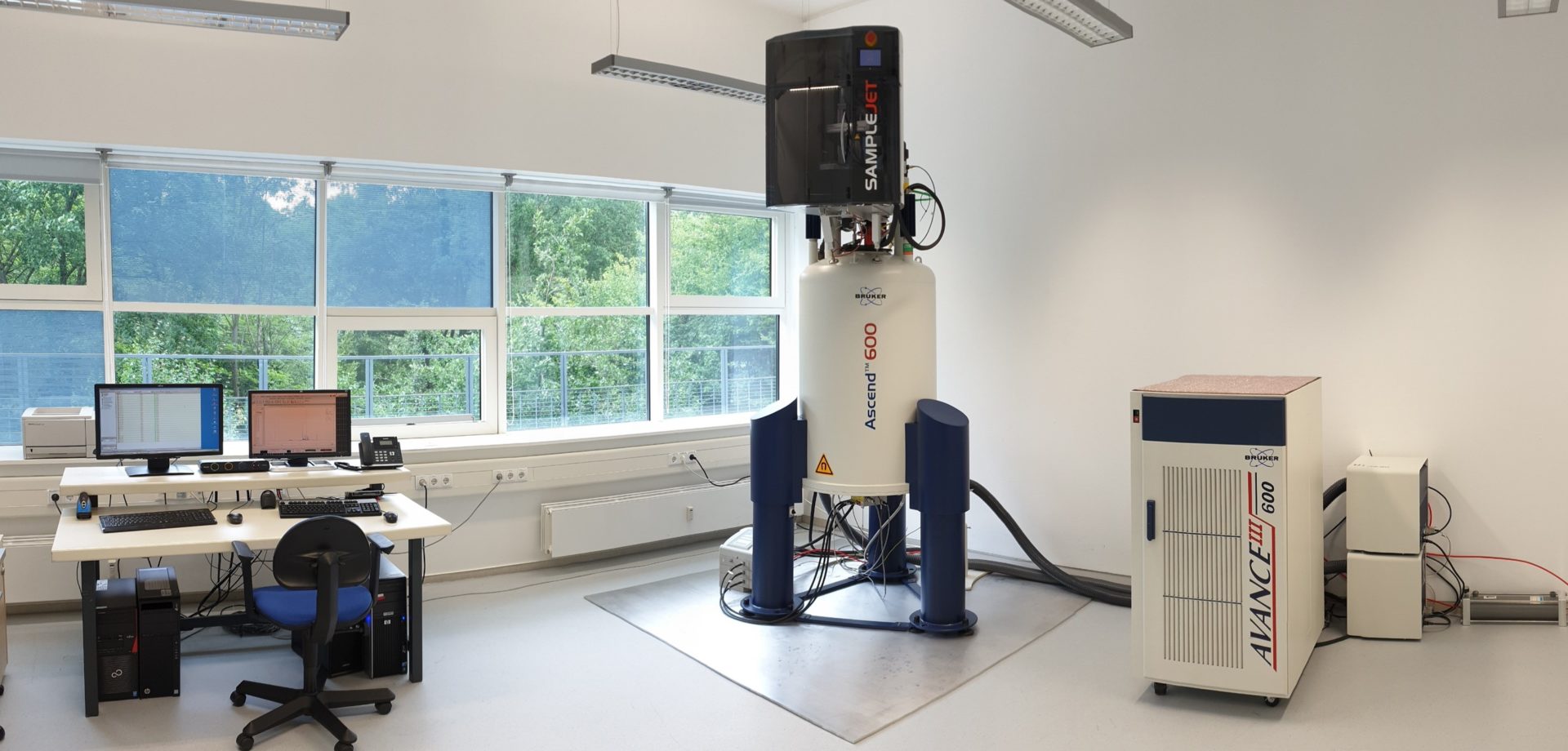NMR Spectroscopy
Nuclear magnetic resonance spectroscopy (NMR) is an analytical method for determining the structure of organic and inorganic compounds. When molecules are exposed to a strong magnetic field, most nuclei can be excited by a broadband radio signal (600 MHz for protons). After this excitation phase, the nuclei return to their original state. A radio signal is emitted that depends on the chemical environment of the nucleus in question. Determining the frequencies reflected by a particular molecule enables identification of molecules (e.g. metabolite screening of body fluids) or elucidation of the structure of unknown molecules (e.g. in structural analysis of proteins). Until recently, NMR analysis was time consuming. However, computerization of the NMR spectroscopy with a SampleJet enabled the measurement of more than 300 samples. Also, SampleJet spectroscopy offers the added benefit of temperature controlled measuremens. As part of NMR spectroscopy, INFAI offers a kidney function test, a metabo test for metabolite screening of native urine, a cardio test for risk assessment of cardiovascular diseases and structural analyses.

